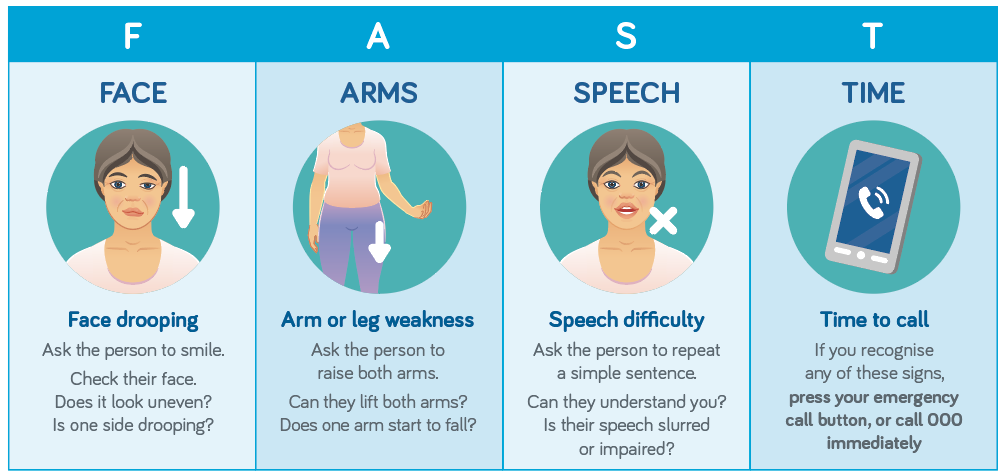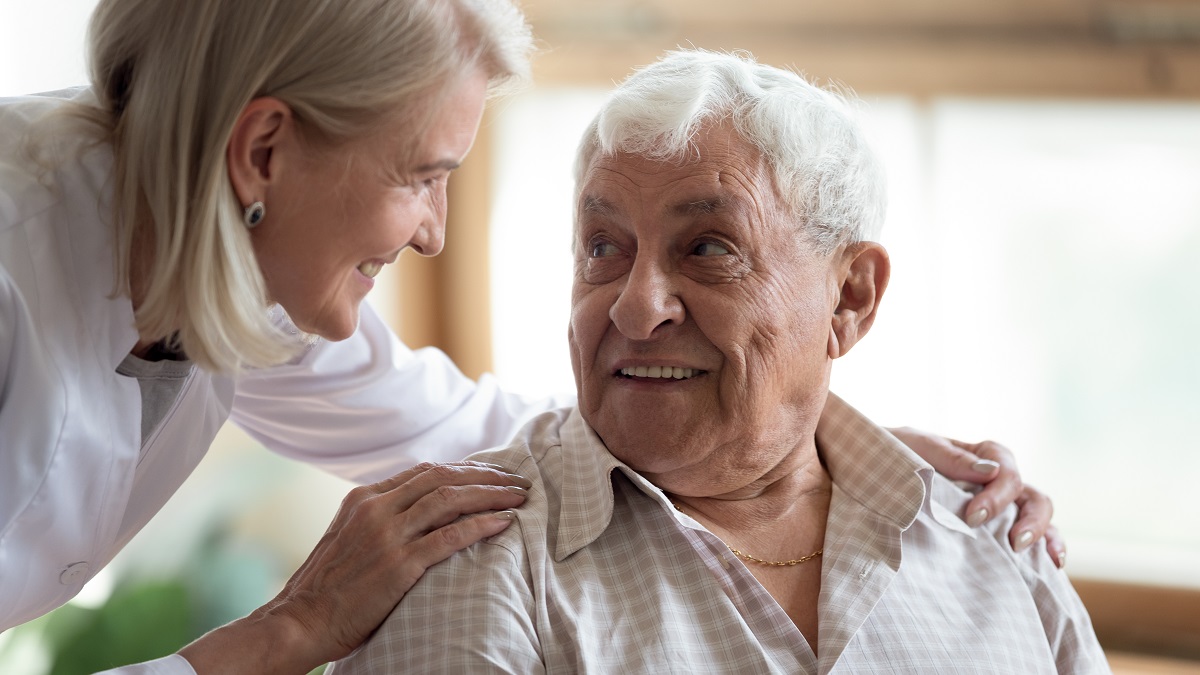A stroke doesn’t discriminate and can happen to anyone of any age, although the risk increases as you get older.

A stroke doesn’t discriminate and can happen to anyone of any age, although the risk increases as you age. In Australia, stroke is the third most common cause of death and the leading cause of disability.^ Last year, 27,428 people experienced a stroke for the first time, which is equivalent to one stroke every 19 minutes?* The good news is that early detection and treatment can be the difference between life and death.
What is a stroke?
A stroke occurs when the blood supply to the brain is interrupted, depriving it of the vital oxygen and nutrients it needs to function. This interruption could be the result of a burst blood vessel or a blocked artery. Without oxygen, the cells and tissues in the brain become damaged and start to die.
Stroke risk factors
When it comes to the likelihood of experiencing a stroke, there are some risk factors that you cannot control, for example, age, family history, race, gender and if you have experienced a stroke in the past. Did you know more than 80 percent of strokes are preventable.#
Preventable stroke risk factors
Risk factors you may be able to control include, high blood pressure, high cholesterol, type 2 diabetes and an irregular heartbeat. You can manage these risks by booking a health check with your Doctor.
You can also reduce your risk of having a stroke by taking control of your health, eating well, staying active, drinking in moderation and being smoke-free.
Effects of a stroke?
Strokes affect everyone differently. The effects of a stroke will depend on the area of the brain that has been affected. Damage to the brain can affect how you think, behave, see, feel, touch, move and speak.
Signs of a stroke
Stroke symptoms usually come on suddenly and without warning. Therefore, it is essential to be familiar with the signs and symptoms of a stroke. According to The Stroke Foundation, the easiest way to identify the most common signs of a stroke is by remembering the word F.A.S.T.

Act F.A.S.T because the quicker you act, the more of the person you save.
If you suspect someone is having a stroke, no matter how minor the signs or symptoms, or even if you are unsure, call 000 immediately.
RetireAustralia’s Care Manager for SA & regional NSW, Jemma Wilson, says acting F.A.S.T can make a big difference to someone having a stroke, it can increase their chance of survival and reduce the severity of any long term effects.






